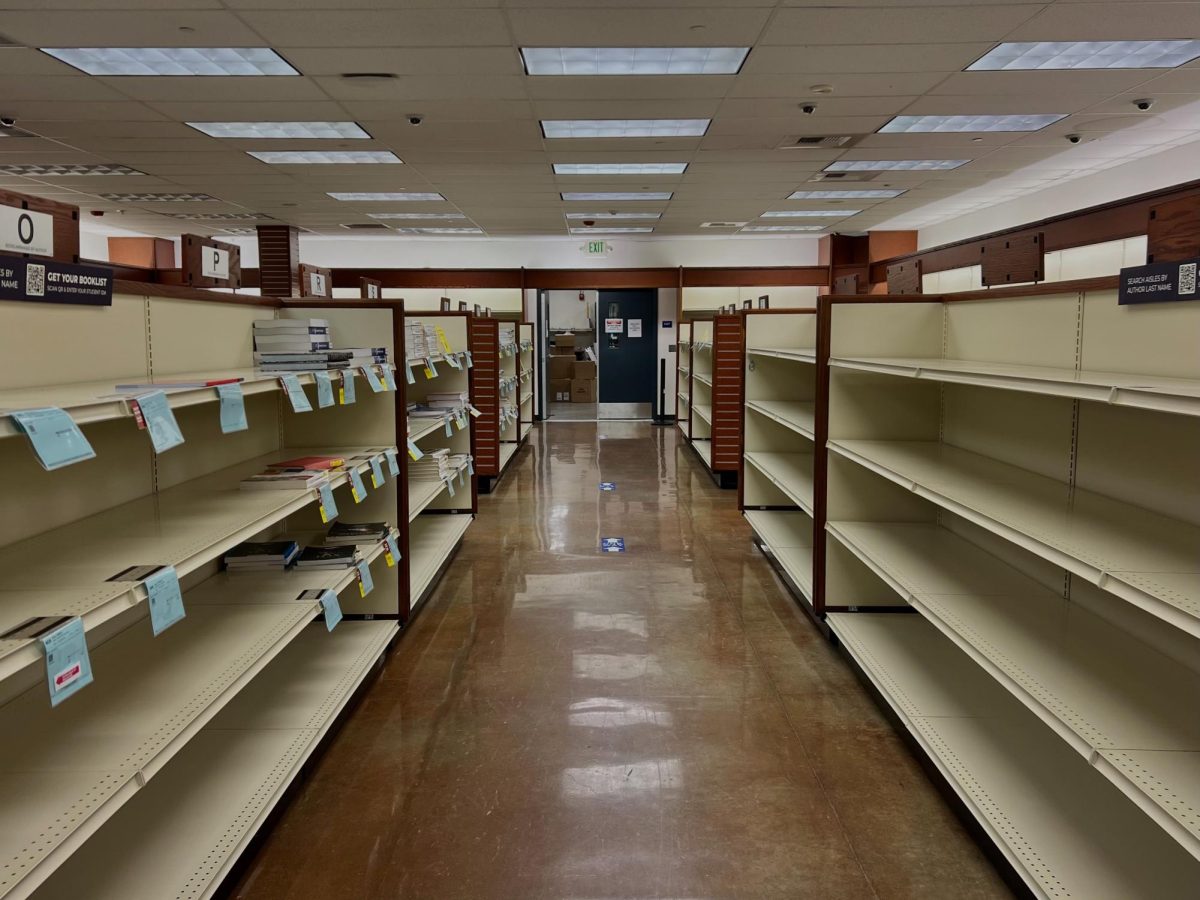Cosumnes River College is formalizing plans to close down its campus bookstore, due to the majority of students utilizing the Zero Textbook Cost program, said Theresa Tena, vice president of administrative services.
The Hawks Nest College Store is one of the lowest financially performing bookstores in the Los Rios Community College District, with the majority of students using Open Educational Resources and ZTC materials, Tena said.
Other campuses in the district, including American River College and Sacramento City College, will keep their bookstores open. Folsom Lake College will be closing its bookstore along with CRC, said Academic Senate President and RTVF Professor Lauren Wagner.
“It’s not a sustainable business model for a private company to continue to operate a bookstore at CRC because so many of our students are utilizing the OERZTC materials, and we’re saving students over the course of three years, $13 million,” Tena said.
Wagner said she doesn’t think of it like CRC hates books; it’s that the companies they’re talking to are saying it doesn’t make sense for CRC, dollars and cents-wise, to staff and to have the bookstore.
“From a business sense, it wouldn’t make sense to continue with a physical bookstore,” Wagner said.
As of fall, 75% of CRC course sections have implemented ZTC, according to the OER Conversion Grant website.
“My only concern as a member who is in the Senate is if the textbooks are online, does that mean that students still have to buy them, or does that only apply to physical copies,” said Dennise Valdez, a 21-year-old, director of legislative affairs in the student senate board.
It’s a disadvantage to those who have a hard time learning through a screen or staying focused on a screen for 50 pages or more, and all students have different learning styles, Valdez said.
Jacob Burner, a 23-year-old CRC bookstore employee, said that after the initial beginning of the year rush, which includes purchasing course materials and textbooks, the majority of students visit the store for snacks and energy drinks.
Burner said he thinks the bookstore closure will have an impact on students because a lot of students don’t like paying for the cafeteria food.
Valdez said she had a similar concern about the snacks.
“I tend to go to the bookstore more than the cafeteria sometimes. I just want like a little snack, and I want to avoid a crowded environment, and the bookstore is the best place to go,” Valdez said.
The bookstore’s location on campus is a pretty high traffic spot for students, Tena said. In the recent past there has been discussions about having a space for students to congregate.
Valdez said she thinks it’s important to repurpose the bookstore to cater to student clubs or organizations so the campus can continue to support students, and they aren’t just taking something away.
“The space that will be made available in the bookstore will be for the Health and Wellness and Hawk CARES,” Tena said.
Wagner said the campus would like to have all of the resources in one spot so students don’t have to go all over campus to find help when they may need it.
“It’s not that we will have no resources on the campus, it’ll be more like you would order things online and get it shipped to your home or shipped to campus,” Wagner said. “The administration is trying to make sure we’re thinking about resources for people so no one’s stuck.”
Final plans for small conveniences like snacks and campus merchandise are still being reviewed, said Kristie West, public information officer. Possibilities for campus merchandise pop-ups may occur at the beginning of each semester, West said.
“For students that are concerned, talk to a faculty member, student senate and let them know what your concerns are again, so plans can be made for how to minimize any of the downside,” Wagner said.

